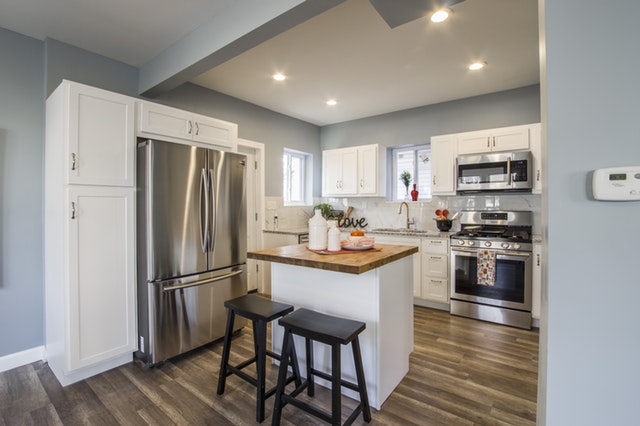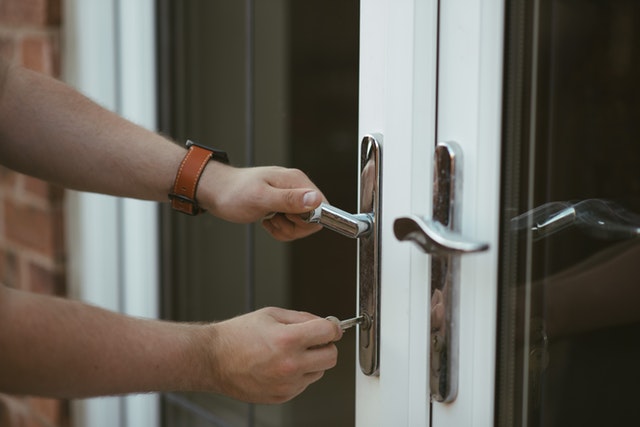Should You Buy A Fixer Upper Or Move-In Ready Home?
 There’s a lot to be said for buying a move-in ready home. All you have to do is put your things away and start living your life. On the other hand, buying a fixer upper has its advantages, too. You can get a great bargain on a fixer upper home. So which one should you choose?
There’s a lot to be said for buying a move-in ready home. All you have to do is put your things away and start living your life. On the other hand, buying a fixer upper has its advantages, too. You can get a great bargain on a fixer upper home. So which one should you choose?
Here are some things to consider.
You Can Easily Afford To Buy What You Want
If money is no object, then a move-in ready home is the best choice. You’ll be able to get exactly the home you want with little or no effort decorating it the way you want. If you’re the kind of person who can hire an interior decorator, then you’ll likely want to spend time decorating, not reconstructing.
You Like A Challenge
If you think of owning a home as an adventure rather than a convenience, consider buying a fixer upper. You’ll have lots of interesting challenges, like figuring out where to buy those non-standard replacement windows, how to reinforce a floor for a tile installation and much more.
You’re Older And Just Want To Settle Down
Renovating a fixer upper requires energy and strength. If you’re older or you tire easily, buying a move-in ready home might be a better strategy. A fixer upper might be too much to handle if you attempt all the work without professional help.
Money Is Tight
If you feel you would be strapped financially to buy a move-in ready home with all the bells and whistles, consider a fixer upper. You’ll be able to easily handle the mortgage payment. You’ll be able to renovate on your own schedule, according to when you can afford new building materials.
You’re Looking For An Investment
If you’re looking to get fast equity out of your home purchase, a fixer upper is definitely a smart move. Once you complete the renovations you could refinance on the higher value and bank the profits.
As you can see, fixer uppers and move in ready homes are both good values, depending on your own situation. Hopefully this list of pros and cons will help you make the right choice for your lifestyle.
Your trusted mortgage professional is available to go over your financing options and get your pre-approval ready for when you find your perfect home.

 As a new homeowner, now is the time to take control and organize your house for safety and security. The following first five steps should be carried out in the first few weeks if possible.
As a new homeowner, now is the time to take control and organize your house for safety and security. The following first five steps should be carried out in the first few weeks if possible. Virtual reality, artificial intelligence and drone video are just a few of the ways that technology is changing the real estate industry. If you are in the market for a property, understanding these new processes can help you in many ways.
Virtual reality, artificial intelligence and drone video are just a few of the ways that technology is changing the real estate industry. If you are in the market for a property, understanding these new processes can help you in many ways. Are you trying to decide if you should rent or buy? There are many reasons why home ownership is better than renting. Here are just a few to consider when you’re making your decision.
Are you trying to decide if you should rent or buy? There are many reasons why home ownership is better than renting. Here are just a few to consider when you’re making your decision. Atlanta, Charlotte, New York and Los Angeles are always on the real estate radar because of big ticket sales and good media coverage. The secondary markets – those markets without the celebrity undertones – may actually be better deals. With the price of borrowing money rising and occupation rates dropping in primary markets, places like Nashville and Birmingham are looking better to investors.
Atlanta, Charlotte, New York and Los Angeles are always on the real estate radar because of big ticket sales and good media coverage. The secondary markets – those markets without the celebrity undertones – may actually be better deals. With the price of borrowing money rising and occupation rates dropping in primary markets, places like Nashville and Birmingham are looking better to investors.